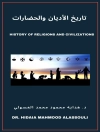In ‘History of the Christian Church, ‘ Philip Schaff presents a comprehensive and scholarly examination of Christianity’s development from its inception to the Protestant Reformation. Writing with clarity and precision, Schaff employs a narrative style infused with historical analysis, theological reflection, and biographical sketches of significant figures. The work is contextualized within the narrative of Western civilization, intertwining not only religious movements but also the sociopolitical shifts that influenced their trajectories, making it a cornerstone text for understanding the evolution of Christian thought and practice. Philip Schaff, a Swiss-American theologian and church historian, was profoundly influenced by his background in both Europe and America. His experiences in the Reformed Church and his keen interest in doctrinal disputes during the post-Enlightenment period shaped his approach to church history. Schaff aimed to bridge the gaps between various Christian traditions, advocating for ecumenical understanding while remaining rooted in his own confessional perspective. This seminal work is indispensable for students of theology, historians, and lay readers alike. Schaff’s meticulous scholarship and engaging prose evoke a deeper appreciation for the complexities of Christian history, making it a vital resource for anyone seeking to understand the multifaceted nature of the Christian faith and its impact on the world.
Giới thiệu về tác giả
Philip Schaff (1819–1893) was a distinguished church historian and theologian, whose seminal work, ‘History of the Christian Church, ‘ remains a benchmark for ecclesiastical scholarship. Schaff was born in Chur, Switzerland, and later migrated to the United States where he became a professor at the Union Theological Seminary in New York. His intellectual legacy is broad and deep, displaying a vast erudition across church history, theology, and patristics. Schaff’s ‘History of the Christian Church’ is acclaimed for its comprehensive scope, tracing Christianity from its earliest days through various historical epochs, with insightful analysis of doctrinal, cultural, and institutional developments. His writing is characterized by a meticulous attention to detail and a balanced, ecumenical perspective, often emphasizing the unity of Christian tradition amidst its diverse expressions. Alongside his historical work, Schaff contributed significantly to the dialogue between different Christian denominations and labored for the recognition of Protestantism within American religious life. His literary style reflects the scholarly rigor of nineteenth-century academia, yet it is enriched by a narrative sensitivity that makes his works accessible to both scholars and general readers interested in the Christian heritage. Schaff’s dedication to the pursuit of historical truth and his monumental achievements in church historiography have cemented his reputation as one of the foremost figures in American theological literature.




